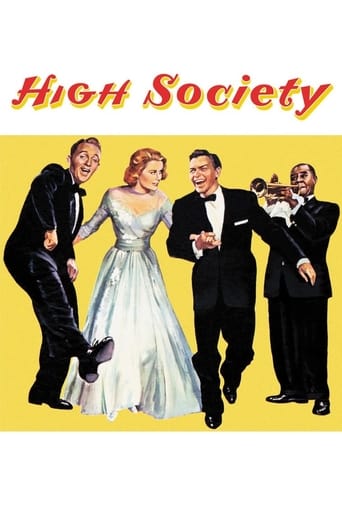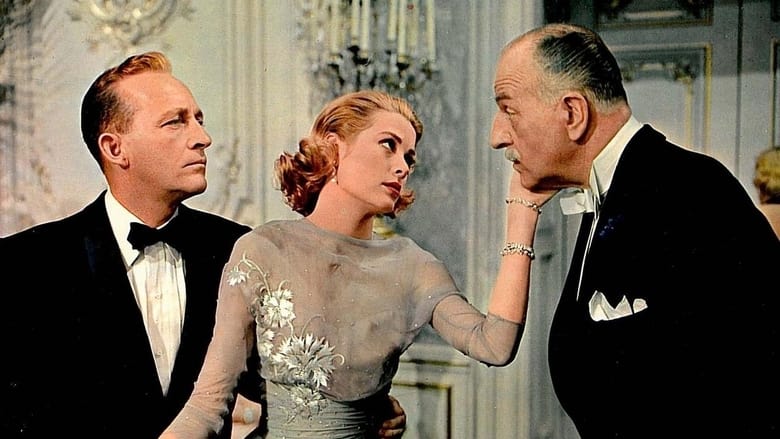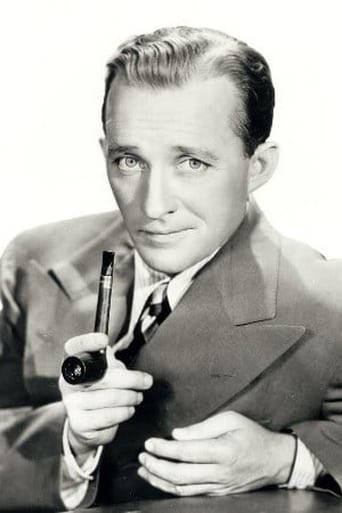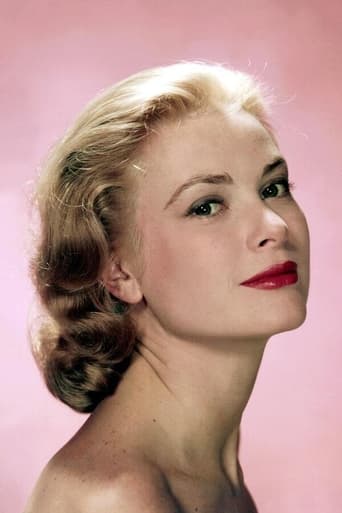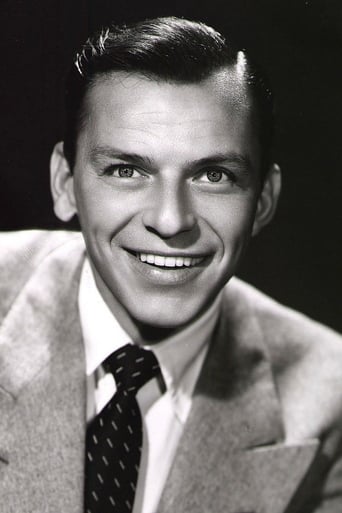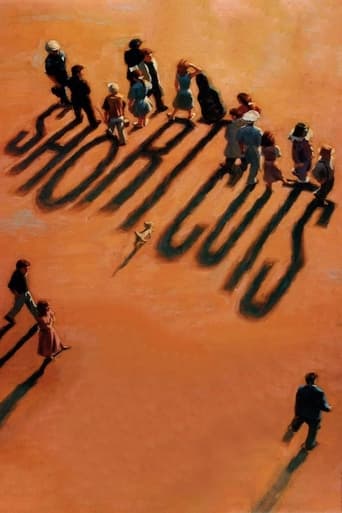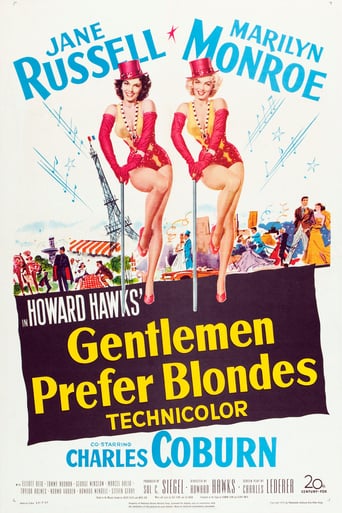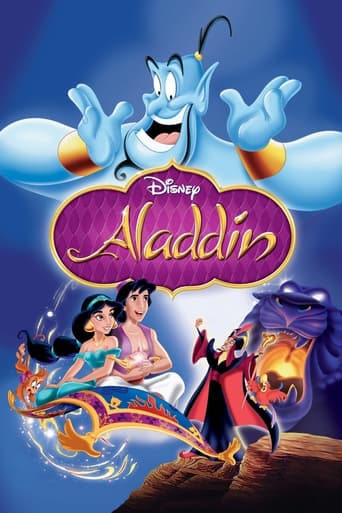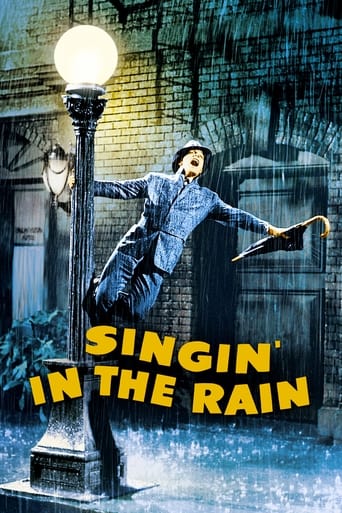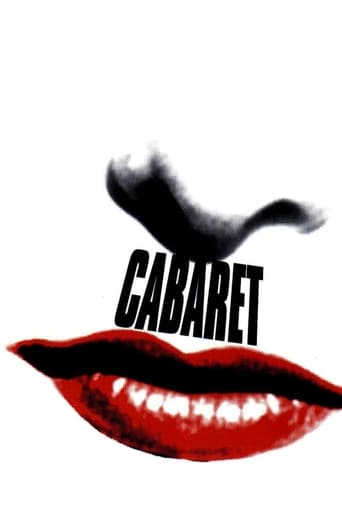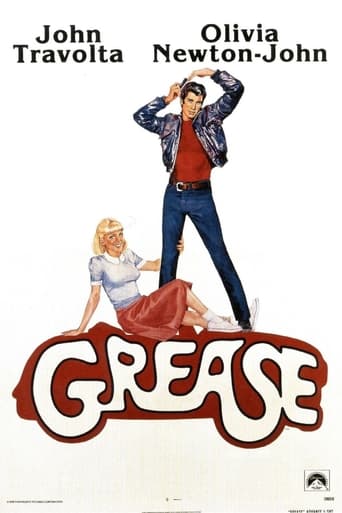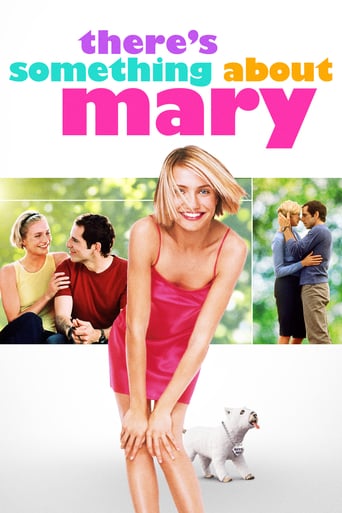High Society (1956)
Childhood friends Tracy Lord and C.K. Dexter Haven got married and quickly divorced. Now Tracy is about to marry again, this time to a shrewd social-climbing businessman. C.K. still loves her. Spy magazine blackmails Tracy's family by threatening to reveal her playboy father's exploits if not allowed to cover the wedding. A remake of the 1940 rom com The Philadelphia Story.
Watch Trailer
Cast


Similar titles
Reviews
This story has more twists and turns than a second-rate soap opera.
This is a must-see and one of the best documentaries - and films - of this year.
A movie that not only functions as a solid scarefest but a razor-sharp satire.
Through painfully honest and emotional moments, the movie becomes irresistibly relatable
This movie hits all the right high notes with Bing Crosby, Grace Kelly, and Frank Sinatra starring, singing, & dancing. The icing on the cake is Louis Armstrong musical skills interpreting Cole Porter's soundtrack.The story is a bit of the I think you did something improper the night before our wedding with another man. He said, she said and I think I saw something that I ought not have... Blah, Blah, Blah. But the singing and dancing covers over any irritations.Worth the rental!
I was somewhat disappointed with the original version, The Philadelphia Story, when I watched it. Though James Stewart's acting was great, for some reason the movie just wasn't too enjoyable for me.When I found this movie, until I read the synopsis I had no clue it was a remake. That being said, I think that High Society made some improvements over its predecessor. The casting in both movies is no doubt great. Many people enjoy Katharine Hepburn in TPS, but I found her annoying.I am a little biased towards Grace Kelly in general but I enjoyed her performance much better than Hepburn's. Making this story a musical helps liven up the whole thing and makes it more enjoyable to see. My favorite was the jazz song by Louis Armstrong and his band with Bing Crosby. Plus, three great musicians are in the cast. What more could you ask for? The ending in both flicks is the same. I'm not giving too much away but I think it comes out of left field (less so in this one). I guess this divorcée romance type of story isn't my cup of tea. Another pet peeve: this movie loves wide shots. Perhaps there are too many.Overall, the performances here are very enjoyable, both acting and musically, and you will be charmed to no end by Grace Kelly and entertained by the music. If you didn't care for The Philadelphia Story, you'll find that High Society improves a story a bit and is overall more fun.7/10 stars.
C. K. Dexter-Haven (Bing Crosby) invites a band (Louis Armstrong and His Band) to his Newport estate to practice. His neighbor and former love Tracy Lord (Grace Kelly) is getting married to the respectable George Kittredge. She disapproves and broke up with Dexter over his lowly music career. Tabloid Spy Magazine uses scandalous information about her father to blackmail the family to gain access to the wedding. They send Mike Connor (Frank Sinatra) and photographer Liz Imbrie. Tracy decides to fake out the tabloid by switching uncle Willy and her father.The cast is high-powered. Based on The Philadelphia Story, a musical remake is not absolutely necessary. It doesn't have quite the same amount of screwball fun. Grace Kelly may not have the comedic chops to deliver fully on the role. She gives off an air of someone trying to be quirky. Part of it is that her character is a little fake but it does translate into Kelly faking it. She's too high maintenance to be appealing. Crosby and Sinatra have the easy charms. I'm not a big fan of the Cole Porter songs. This has all the fire power in the world but it is not quite as fun.
I'm one of those who don't admire this film much.On the positive side, it's a lush production. It has a Cole Porter score -- my favorite composer -- although I'm impressed with only a few of the songs: "True Love" (of course), "Who Wants to Be a Millionaire?" (with a swellegant turn by Celeste Holm), and the bright "Well, Did You Evah!" (in a terrific duet by Bing and Frank); the other songs are forgettable.Another positive note are a number of the supporting actors -- Celeste Holm as a reporter, Louis Calhern as an uncle, Sidney Blackmer as the father, Margalo Gillmore as the mother, and young Lydia Reed as the younger sister.Unfortunately, I can't say as much for the lead cast. Bing Crosby is always very natural on screen, and is here. Grace Kelly has another turn as a spoiled brat, and as far as I'm concerned flubs the role terribly. Frank Sinatra plays the smart ass that he seemed to be in real life...which may have gone over well in the 1950s, but isn't as attractive today; and ironically, he played a poor drunk (type casting from the Rat Pack days?). John Lund as the fiancée????? Stick with the original "The Philadelphia Story", or watch this one as a comparison. Frankly, about the only reason this film was made was Bing's whim and Grace Kelly's rising star (in terms of the latter, thankfully it was the last film with her that we had to suffer through).

